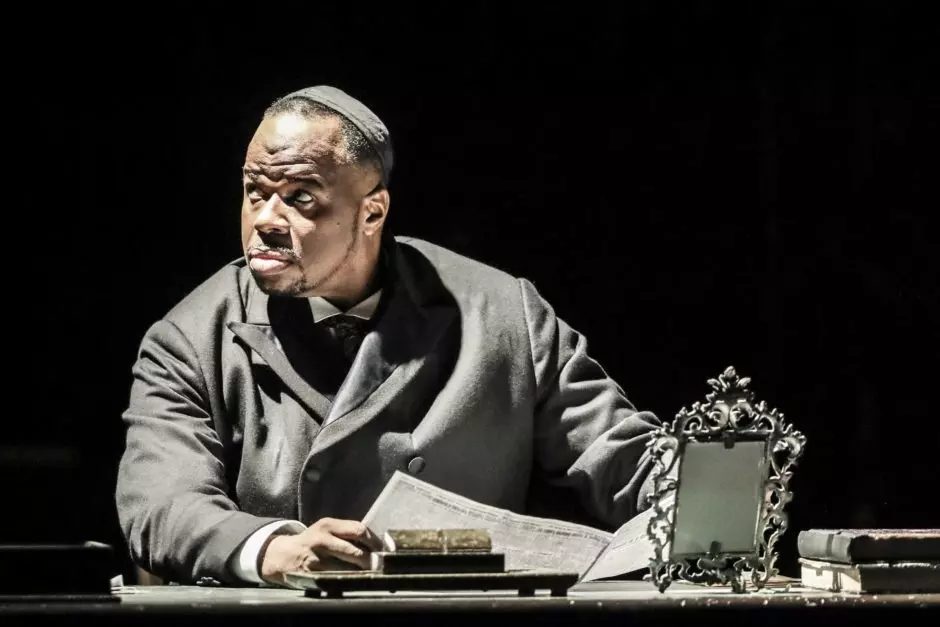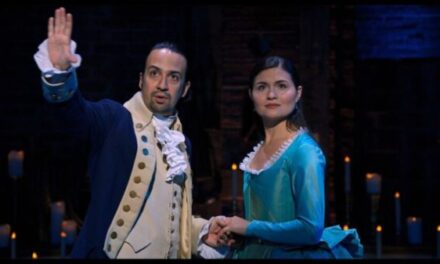For a composer in search of characters and a good plot, Shakespeare might appear a rich source, yet there are few really successful operas based on his plays. It is an Italian, Verdi, who pretty much sweeps the board with his Otello and Falstaff, but the playwright’s own countrymen, among them arguably the best British operatic composer, Benjamin Britten, fought shy of the heavy-duty tragedies. Britten’s A Midsummer Night’s Dream is a masterpiece, but where was his Lear or Hamlet?
One Polish composer living in Britain had no such reservations, however. André Tchaikowsky, born Robert Andrzej Krauthammer but renamed after the Russian composer by the grandmother who raised him, lived up to her expectations with a considerable musical output. His compositions won him many important prizes, and he was a sought-after concert pianist. His dying request, however, was that a single, unperformed work of his be staged – the opera inspired by the playwright he adored, The Merchant of Venice.With his own Jewish background (his mother died in Treblinka), as a gay man at a dangerous time, and as something of an outsider in his adult life in Oxford, this Anglophile poured into his operatic version of this difficult play both the passion of experiences felt personally, and his advanced appreciation of the nuances of Shakespeare’s text.
With his own Jewish background (his mother died in Treblinka), as a gay man at a dangerous time, and as something of an outsider in his adult life in Oxford, this Anglophile poured into his operatic version of this difficult play both the passion of experiences felt personally, and his advanced appreciation of the nuances of Shakespeare’s text.
Few music lovers today even know Tchaikowsky’s name, though he gained a very different association with the Bard through his distracting bequest to the Royal Shakespeare Company of his own skull, to be used as a prop; so it was that David Tennant handled the mortal remains of the composer in his much-praised Hamlet in 2008.
As complex and dark as this curious legacy, Tchaikowsky’s Merchant of Venice was 25 years in the making, and received its first performance only in 2013, in Austria, more than 30 years after his death at the age of 46. But now, at last, The Merchant of Venice is to have its British premiere, with a production by Welsh National Opera at its home base, the Wales Millennium Centre, Cardiff, before touring. In including it in the company’s season dedicated to the 400th anniversary of Shakespeare’s death, WNO artistic director David Pountney is importing the production he and director Keith Warner staged in Bregenz, where it won the 2014 International Opera Awards prize for
In including it in the company’s season dedicated to the 400th anniversary of Shakespeare’s death, WNO artistic director David Pountney is importing the production he and director Keith Warner staged in Bregenz, where it won the 2014 International Opera Awards prize for best operatic premiere.
Pountney’s first encounter with the piece dates to the 1980s, when he was director of productions at English National Opera. “I was part of a panel that listened to André Tchaikowksy playing through a substantial part of his opera,” he explains. “He was euphoric about the idea of playing this piece, so when he got a letter to say there wasn’t room to stage it, he was devastated.” Already ill, the composer died three months later, in 1982.
“What Tchaikowsky saw is the operatic potential of the play,” says Pountney. “Venice is the world of money and intrigue; Belmont is the world of beauty, women and music. When Portia crosses from Belmont to Venice, she becomes ruthless and pursues Shylock. She is so extreme that our sympathies are for him.” The opera begins and ends with Antonio opening his heart in a therapy session– “In sooth, I know not why I am so sad.”
Two Americans, baritone Lester Lynch and soprano Lauren Michelle, sing the roles of the money-lender Shylock and his daughter – casting that is designed to indicate how they are viewed as different by the other characters. And the set by Ashley Martin-Davis has Edwardian overtones that speak of a society living decorously on one level and shamefully on another.
“It’s a great British opera,” concludes Pountney. “Polytonal, complex and not easy, but it is the one serious British Shakespeare opera. It’s a wonderful find.”
The Merchant of Venice is at Wales Millennium Centre, Cardiff, on 16 and 30 September, then touring to Bristol, Southampton, Birmingham, Llandudno and London (wno.org.uk)
This article was originally published on News The Essential Daily Briefing. Reposted with permission. Read the original article.
This post was written by the author in their personal capacity.The opinions expressed in this article are the author’s own and do not reflect the view of The Theatre Times, their staff or collaborators.
This post was written by Claudia Pritchard.
The views expressed here belong to the author and do not necessarily reflect our views and opinions.


















